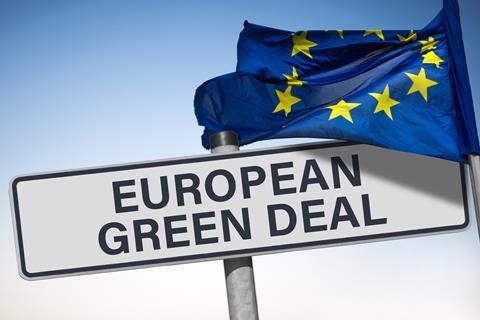CropLife South Africa executive warns producers to prepare for the new European Union Green Deal

African countries have been warned that the European Green Deal is on the way, and they should be better prepared to deal with the effects.
“The Green Deal is real, and we must be prepared,” said Rod Bell, Croplife South Africa CEO, who recently spoke at a workshop held in Stellenbosch. ”The train has left the station; we can only delay and hopefully mitigate the direction the train is taking.”
The matter has been taken seriously by South Africa’s deciduous fruit industry body Hortgro, which covered the issue extensively in its latest communication with growers.
The European Green Deal is a comprehensive policy framework introduced by the EU to address climate change and promote sustainable development.
According to Bell, it is imperative that South African agriculture and producers understand the implications for the industry, and both adapt and evolve.
He noted that in Europe the Green Deal has been ramped up due to coming EU parliamentary elections and the war in Ukraine.
“The political landscape in Europe has changed,” Bell explained. “Currently, 17 laws are being drafted in the European Parliament that will have an impact on agriculture.
”The Green Deal is driven by strong public and consumer demand for environmentally friendly products. South African farmers may need to adjust their production methods to meet this demand.”
Concern about the Green Deal is shared across other African countries and in the Middle East.
Dr Alan Hardacre of Croplife Africa and Middle East told delegates at the workshop that they are engaging with all relevant SA government departments and will be represented at high-level talks in Brussels scheduled for this month.
“For us to have an impact, it is imperative to have industry support and data that can be used in negotiations. We need holistic conversations to find solutions to negotiate the Green Deal.”
South Africa cannot face the challenge alone, he explained, and needs support from other African countries. “We need an African voice to negotiate the Green Deal,” he said.
According to Croplife, the African continent and its farmers are facing increased challenges to feed their growing population, both directly in terms of local food production, but also in terms of running viable agricultural businesses for local job creation and economic stimulation of the continent’s relatively poor economy.
“It is, therefore, essential to get the sustainable growth agenda right in agriculture while ensuring food security remains a priority,” Hardacre added.



